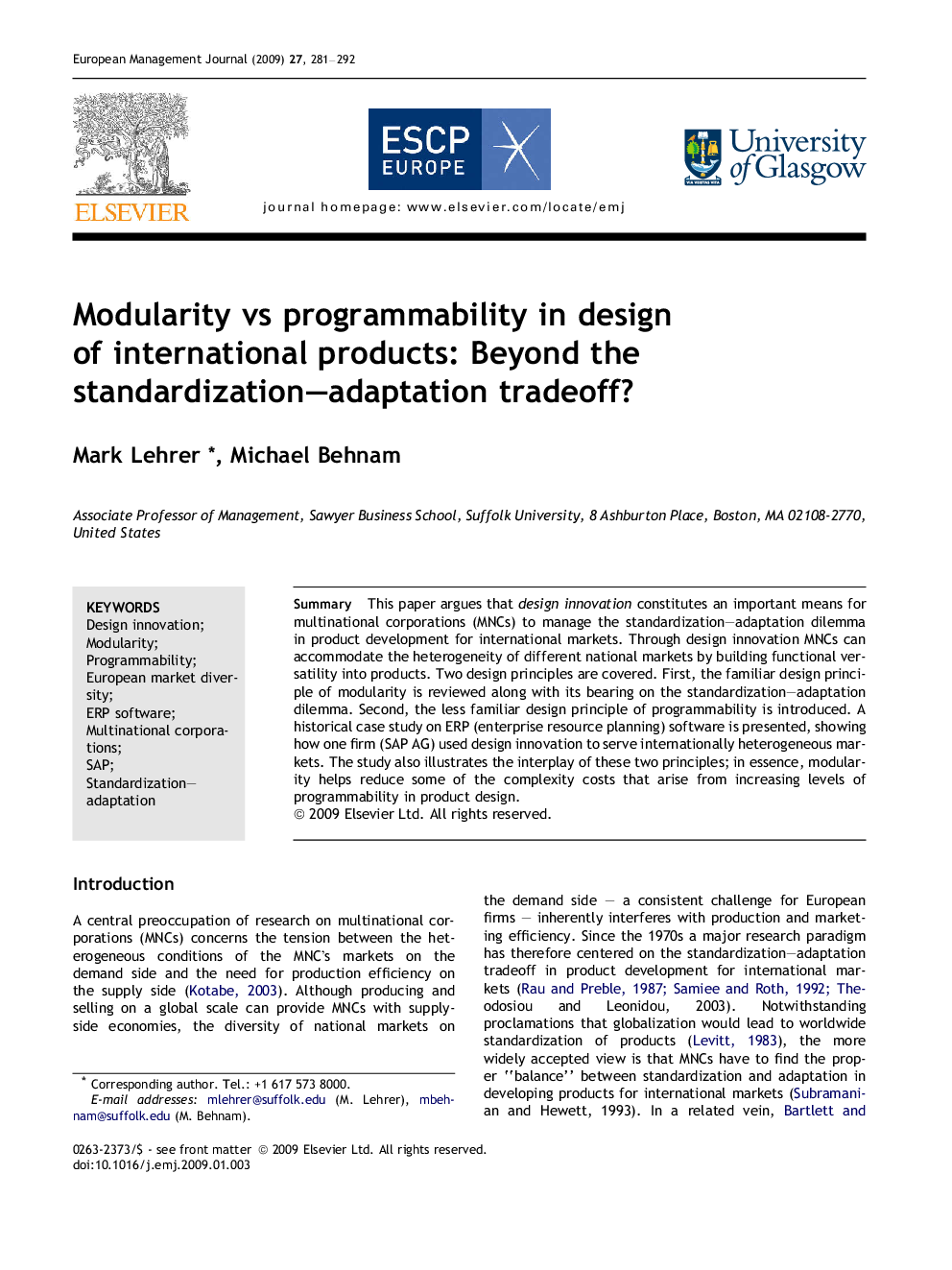| Article ID | Journal | Published Year | Pages | File Type |
|---|---|---|---|---|
| 1015187 | European Management Journal | 2009 | 12 Pages |
SummaryThis paper argues that design innovation constitutes an important means for multinational corporations (MNCs) to manage the standardization–adaptation dilemma in product development for international markets. Through design innovation MNCs can accommodate the heterogeneity of different national markets by building functional versatility into products. Two design principles are covered. First, the familiar design principle of modularity is reviewed along with its bearing on the standardization–adaptation dilemma. Second, the less familiar design principle of programmability is introduced. A historical case study on ERP (enterprise resource planning) software is presented, showing how one firm (SAP AG) used design innovation to serve internationally heterogeneous markets. The study also illustrates the interplay of these two principles; in essence, modularity helps reduce some of the complexity costs that arise from increasing levels of programmability in product design.
